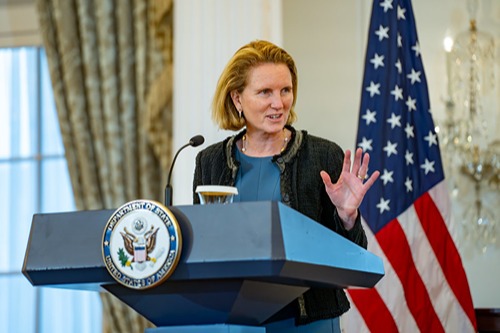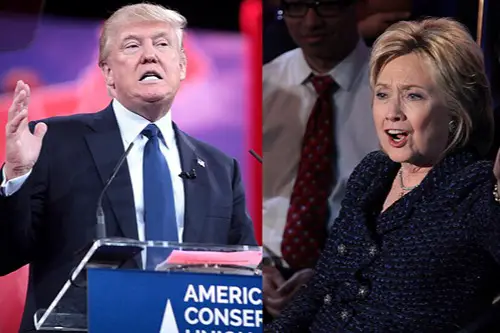1. Bipartisanship

“Bipartisanship” sounds like adults in the room finally getting along to do what’s best for the country. In reality, it’s often a political smokescreen used to shut down critique—if both parties agree, then it must be beyond debate, right? But bipartisan deals can just as easily reflect the shared interests of elites or lobbyists as the public good. It’s frequently trotted out when lawmakers want to avoid explaining why they’re supporting something unpopular.
The term can also be used to silence dissent within a party. If you’re questioning a “bipartisan” bill, you’re framed as unreasonable or radical. It assumes compromise is inherently virtuous, even when it leads to watered-down, ineffective policy. In practice, bipartisanship often just means “don’t rock the boat.”
2. National Security

“National security” evokes protecting the homeland from real threats—but it’s also one of the vaguest and most overused justifications in American politics. It’s invoked to support policies ranging from foreign wars to domestic surveillance to increased military budgets. The term’s ambiguity makes it nearly impossible to challenge without being accused of endangering the country. That makes it a perfect shield for secrecy and unchecked power.
When something is labeled a “national security issue,” the details often disappear behind classified briefings and redacted documents. It gives politicians and agencies license to act without public oversight. Whistleblowers get punished, and journalists are told to back off. The phrase tells the public, “Don’t ask—it’s for your own safety.”
3. Homeland

The word “homeland” was popularized post-9/11, especially with the creation of the Department of Homeland Security. It has an emotional pull, tapping into patriotism and a sense of belonging. But it’s also a rhetorical tool used to rally unquestioning support for military, surveillance, and immigration enforcement programs. The term can obscure the political and moral implications of those policies.
Calling America “the homeland” subtly shifts the tone from democratic republic to fortress. It invites loyalty and deference rather than debate. It’s hard to criticize policies cloaked in the language of protection and home. That’s why it’s so effective at shutting down nuanced discussions.
4. Thoughtful Debate

Whenever politicians say, “We need a thoughtful debate on this issue,” buckle up—you’re probably not getting one. The phrase is usually code for delay or deflection, a way to avoid taking a clear position. It suggests that critics or urgent voices are rushing things or being emotional. But many issues—gun violence, climate change, systemic racism—have been “debated” for decades.
“Thoughtful debate” is often used to sideline marginalized voices or activists demanding action. It makes the speaker sound wise and measured without committing to anything. It’s the political equivalent of saying, “Let’s circle back on that.” Spoiler: they rarely do.
5. Common Sense Solutions

“Common sense” sounds like something everyone should agree with, but in politics, it’s a red flag. The phrase is used to frame a policy as so obvious that disagreement must mean you’re unreasonable or extreme. It’s a rhetorical shortcut that avoids the hard work of defending an idea with evidence. And it often glosses over how “common sense” can mean very different things depending on your background or values.
For example, “common sense” gun laws mean something very different to a gun owner in rural Texas versus an activist in urban Chicago. The term bypasses real debate by implying there is no debate. It’s a way of steamrolling opposition while sounding rational. That’s not policy—it’s marketing.
6. American Values

“American values” is one of those phrases that feels good but means everything and nothing at once. Politicians invoke it across the spectrum, whether they’re defending immigration or banning books. The beauty—and danger—of the phrase is that it’s so vague it can justify almost anything. If you oppose the policy, well, maybe you don’t share those “values.”
It’s a phrase designed to tug on identity and loyalty rather than invite real conversation. People rarely define which values they mean—freedom? Equality? Rugged individualism? It’s often used to suggest moral clarity where none exists. And once it’s invoked, questioning it sounds downright unpatriotic.
7. Respectfully Disagree

“Respectfully disagree” sounds civil and kind, but in politics, it often carries a different tone. It’s used to preempt criticism while dodging actual engagement. The phrase can make someone sound reasonable even as they oppose human rights, climate action, or voting access. It’s a polite way of saying, “I’m not listening.”
You’ll often hear it in hearings or interviews right before someone pivots away from tough questions. It gives the illusion of dialogue without the substance. Saying you “respectfully disagree” with facts or lived experiences doesn’t make it respectful. It’s the velvet glove on the iron fist of avoidance.
8. Public-Private Partnership

This term pops up when government teams up with private industry to “solve” big problems—think infrastructure, education, or health care. On paper, it sounds efficient: combining the innovation of business with the accountability of government. But in practice, these partnerships often lack transparency and tilt toward profit over public interest. The risk is socialized, while the reward is privatized.
These deals are frequently struck with minimal oversight or public input. Companies get contracts and favorable terms, while the public gets rising costs or reduced services. It’s marketed as a win-win, but follow the money and it’s usually clear who’s winning more. The term makes it sound collaborative—but often, it just means “don’t look too closely.”
This post 8 Political Terms That Sound Noble But Mostly Mean “Please Don’t Ask Questions” was first published on American Charm.


